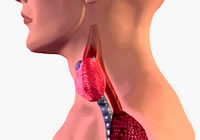Analysis on PAP-A during pregnancy: the value and decoding of the results.
Content
Blood test on PAPP-A during pregnancy

PAPP-A (from English. PRGNANCY Associated Plasma Protein A), or a plans associated with a pregnancy, — Protein, Normally synthesized during pregnancy.
Papp-A functions during pregnancy:
- stimulation of growth and tissue differentiation;
- Regulation of the immune response during pregnancy.
PAP level indicators for pregnancy can be used for monitoring and screening per row of pathologies in woman and fetus. For this reason, the quantitative determination of PAPP-A, along with tests on AFP, HCG and estriol, is recommended for use as a mandatory study during pregnancy.
Interpretation of the results of analyzes for PAP-A during pregnancy.
PAPP-A level measurement units during pregnancy — honey / ml or ed / l.
PAPP-A norm during pregnancy:
- 8th week — 0.2-1.5 honey / ml;
- 12-14th week — 1-8.6 honey / ml.
Reduced PAP level — Possible feature of the following pathologies:
- High risk of chromosomal diseases (Down syndrome, Edwards Syndrome and DR.);
- the threat of spontaneous interruption of pregnancy in the early stages;
- Undustful pregnancy.
The final diagnosis is made only by a gynecologist and only after a number of additional analyzes and research.









